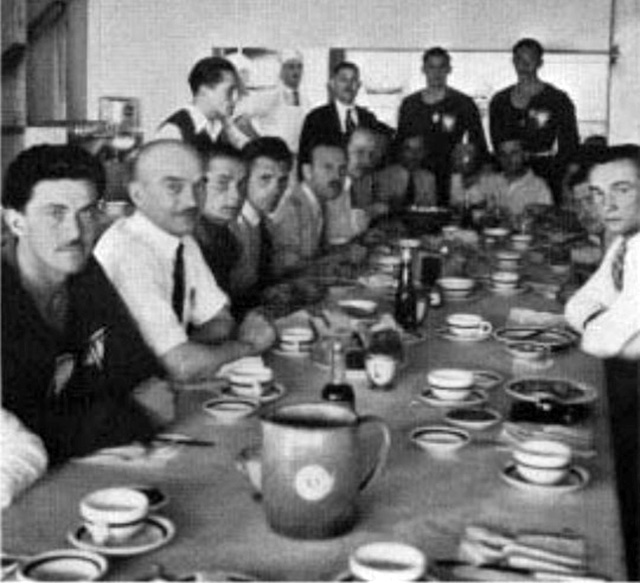The Olympic Village for the 1932 Los Angleles Games was the first designed in a similar model to the villages of today. It consisted of a large number of buildings, athlete lodging plus other facilities. A rate of two dollars per day was fixed for each village occupant toward the cost of his housing, dining service, local transportation, entertainment and general care.
The Los Angeles Olympic Games in 1932 was one of the first to provide a large village with a range of facilities, including dining rooms for all the athletes. The food supplied in these dining rooms was required to cater to a diversity of sports, cultures, ages and special dietary needs of athletes and officials from around the world. See more about Olympic Village nutrition and links to information about the food supplied at other Olympic Games.
1932 Los Angeles Dining Halls
The athlete village in Los Angeles in 1932 consisted of lodging for 2,000 men, plus many other facilities including dining halls. The design planned for each nation to have its own dining room and kitchen so that each could be supplied with its particular native food prepared by its own chef. The Olympics were attended by 37 nations, though they were accommodated in 31 separate dining rooms, as some teams were quite small.
 A scene from an Olympic Village dining room
A scene from an Olympic Village dining room(from the Olympic Games Official Report Los Angeles 1932)
The official report described their 'modern' equipment
"In equipment the kitchens were most modern. Virtually all utensils were of the finest grade of aluminum. Vitreous china was used and the silverware was of heavy plate."
Although water was piped to the village, bottles of distilled water in bottles, fresh every day, was placed in each cottage and dining room. Refrigeration was by ice. The fuel used for cooking was bottled gas.
Each day the various chefs drew up their menus for the next day, and ordered the food required, which was delivered the next morning. This was supplemented with supplies of condiments, tinned goods and dry vegetables from the Commissary storeroom, and stationed at the Commissary also was a refrigerator truck stocked with milk, cream, butter, eggs and cheeses.
Source: the official report of the Xth Olympiad Los Angeles 1932.
Related Pages
- Olympic Village nutrition, includes links to information about the menu at other Olympic Games.
- Nutrition at the Olympics
- About the 1932 Olympic Games
- History of the Olympic Games Athlete Villages
- Nutrition for Athletes at Major Events


 Current Events
Current Events